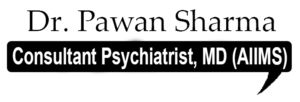Popular (pop) psychology is an umbrella term that includes the group of psychological ideology, therapy, or other technique which gained popularity through a book, TV show, or blog post. They are heard for so long and spread so far that the general public believes them. These theories are often written about in magazines, discussed on talk shows, and spewed forth by non-psychologists. They are often associated with quick fixes as it promises easy solutions to difficult problems. In our clinical practice, we come across many people who have been misled by this psychology and they ask for simple and easy fixes as advocated in social media or magazines. The fixes they present sound too good to be true or don’t provide any research evidence of effectiveness but still have a deep impact on an individual, especially in a vulnerable mind. Almost all the time the author/speaker has never treated anyone with the conditions they claim expertise in treating. There’s no mention of their qualifications, training, licensure, or certification which is an important red flag. The common types of pop psychology we come across are:
- Pop Psychology Blogs. Personal websites written by authors without expertise on a given topic.
- Talk Shows/ TV Programs/Podcasts. They vary in quality. They might be hosted by psychologists or hosted by people who have never studied psychology.
- YouTube Channels. Many YouTubers making videos on mental health topics claim to be experts in the field which might not be true.
- Self-Help Books. Self-help books sometimes contain methods that are not evidence-based or endorsed by scientific research.
- Self-Help Products. Many self-help products can be found online, but they are not all based on evidence-based methods.
- Internet Forums. Internet forums may have users who claim to know about psychology when they don’t.
When we suffer from any mental health issue we tend to seek information about it. The go-to place is the internet and pop psychology is selling happiness via magic formula. As a patient, we tend to avoid professional help as pop psychology makes us believe the problem is within us and in our thought. It makes us believe that positive thinking is the key and we become more depressed and anxious as we cannot bring out what the fake (non-scientific) literature and media posts are selling. The cycle continues taking us into the deeper realms of psychological trauma.
Sometimes for a very small fraction of non- clinical population pop psychology might help. They might provide a required little push for a mentally healthy mind but it is very dangerous if someone has a mental disorder and follows it blindly. Hence it is suggested not to rely on pop psychology alone, but instead combine it with other treatments such as psychotherapy or medication. The following tips might be useful:
- Talk with your doctor about the pop psychology methods you plan to try.
- Recognize that the same advice may not work for everyone. Look for evidence-based methods rather than personal stories or anecdotes about success.
- Don’t spend more than you can afford to lose since there are no guarantees about the outcome.
- Be cautious about self-diagnosis based on what you read or watch online.
- Reflect on whether you want advice from someone who has never evaluated or treated your condition.
- When you have a problem discuss it with a professional rather than relying on what pops up first in google.
The bottom line is that mental health problems are real and there are biological in nature. They are similar to physical illness and opinions about the treatment are best provided by professionals.




